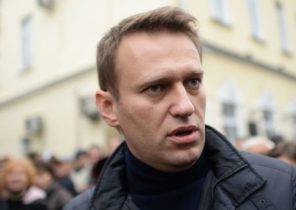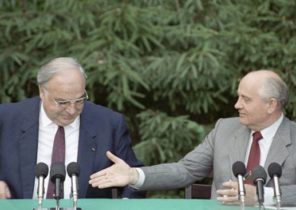
Polityka: refusal of meat is usually said in the context of ethics or health. Your work called the political economy of vegetarianism: nutrition is in them socio-political problem. How did such a concept?
Urbanski Yaroslav (Jarosław Urbański): I am vegetarian for 30 years and been watching the literature on this topic. I am interested in these issues, including as a sociologist. One day I was invited to participate in the discussion about the connection of vegetarianism with social, political and economic problems. I saw that the arguments for a vegan, proanimistic motion not in contact with wider social issues. For example, it denounces the people who work in slaughterhouses and abused animals. This rigidity is visible in the movies made by a hidden camera. But that ordinary employees with low wages, working in low-prestige job, and the income received by someone else. Structure of the consumption of meat is associated not only with the relationship man — animal, but also with different other systems of balance of power. Appeals to empathy will not solve the problem. Have to wonder if people are working in the meat industry on their own, who are meat producers: consumers or also victims of this industry? I wanted to see how everything looks from a historical perspective, what were the sources of this phenomenon.
— You start with a seemingly solid refutation of the myth of a prehistoric human hunter.
— The idea that diet played a key role in human evolution, and the collective hunting influenced the development of social skills and relationships is a very persistent myth. The vegetarian literature of the controversy also always surrendered: well, man has always eaten meat, but this does not mean that we should tolerate the existence of animal industry. However, the hypothesis of a man-hunter is an ideological project of the West — the image of man, as biblical crown of creation and the Patriarchal paradigm that extols the male function (the hunt) and pushes into the background the female (gathering). Meanwhile, anthropologists often say that the thesis of man as a hunter — not an axiom. Based on available data story can be told differently. People ate meat, but mostly carrion, but it was not the basis of his diet. And he often acted as victims of predators than the hunter. Meat and hunting so could not be the driving force of evolution.
— Where did the sacred value of meat, which we meet already in ancient times in the form of bringing the gods of victims?
This phenomenon has a material basis. Meat was less available than other products. The religious aspect is associated with unequal distribution. The ancient Shrine was a kind of slaughterhouse where it happened. Some groups and castes to this distribution of benefits is not allowed. This was associated not only with consumption but also with prestige, a place in the hierarchy, the decision of who has the right to have the cattle as draft power. To have a stud meant to have power. The rulers received the tribute of the cattle. In India, all developed in a different way: under the influence of the strong opposition to new religious movements (such as Buddhism and Jainism) against such redistribution leading ideology became vegetarianism. Happened sacralization of the disuse of meat.
Meat spurred the process of social stratification?
Yes. This follows at least from a simple counting calories. On the same square crop can feed ten times more people than livestock. But not only that. The possession of cattle was one of the key factors of social stratification, it has become a method of capital accumulation, the subject of trade and exports. In the middle ages the consumption of meat in the village and the city was strikingly different. It would seem that the meat could have where it is produced — in the village. But it’s not. The use of meat as food was distributed along with the urbanization of Europe. Urban network of commodity exchange has absorbed a huge number of products of animal origin, which are required in different sectors of crafts: tanning, saddlery, shoemaking and furriery, production of parchment, grease, soap, candles, brushes, brushes. For the operation of the craft killed millions of animals that changed the entire economic system. I even thought about whether there was meat in that period by-product that hit the city diet.
— Peasants were vegetarians?
— If we call those vegetarians who doesn’t eat meat, Yes. On the one hand, there was, for example, long posts, which are carefully kept in the village. On the other, the main reason why rural families most of the year did not eat meat — it’s just poverty. Meat was a luxury.
— You put forward a thesis that the change in patterns of consumption lay at the root of wars and peasant revolts of the XVII and XVIII century. This is not a simplification?
— Of course, these social processes were very complex, but trends in the development of the market of meat and animal products, of course, changed the ratio of prices. For grazing, they needed more land, grew a huge feudal economy, which was mainly engaged in production for export. Peasant farming has lost its meaning. Because of the pastures was reduced acreage, increased the price of vegetable food, which were the basis of the peasant diet. The meat was still worth more, but it became cheaper relative to other products. This led to the impoverishment and famine in the villages. The peasant war was the war between the two types of farms. A similar situation existed in America. The colonizers brought cattle and turned vast areas into pasture, and the Indians attacked the herd of sheep and cows. It was a war for who will feed the earth: human or animal, which then will feed the elite. It is no coincidence that the era of enclosure in England coincided with a mass peasant uprisings. Said animals are eating people, because arable land turned into pasture. Of course, the relationship was not so direct, the peasant uprising occurred against a broader background, however, so far no one has attached much importance to the deep changes in the structure of management and ownership structures after the birth of the meat industry. For example, we understand that after the birth of the automotive industry, the economy has undergone. I believe that the appearance of the meat industry and in General the mass market of products of animal origin could play an even more important role. We are not used to think about it that way, it seems to us that this is normal. Is the air we breathe, to eat meat, skins, fur we sell. But you should think, where do these furs, what were the mechanisms of mass-production, what did it mean, for example, for indigenous peoples of Siberia. It’s not just an innocent operations with goods.
— The data you gathered show that “masectomy” differed primarily Europe and the history of colonialism is first and foremost a history of the expansion of animal husbandry.
— There are three main aspects: eating meat-rich, not the poor, that seems obvious; it ate of the city, not the village; the situation with the consumption of meat looked different in the center of the capitalist economy and its periphery, and here appears the theme of colonialism. The new world and Asia, meat is almost never used. Until the late eighteenth century outside Europe was dominated by a vegetarian diet.
— Indians engaged in hunting?
— Worked, but not all. Most not hunted, because it was not profitable. To grow corn time consuming, but so effectively that to refer to a different diet did not make sense. Massive hunting — another myth. We imagine that draw sustenance from nature is easy: when the animals everywhere, it is sufficient to have the ability and dexterity. But this is true only in relation to wild plants, and then only with certain restrictions. The richness of the ecosystem of the game is not so great, in addition it changes in different seasons and in different years. These processes people to manage couldn’t. The vast majority of Mesoamerica made the basis of his existence vegetarian food. In North America the Indians, of course, hunting, but the question remains how much. Take, for example, the story of a tribe of Hurons, which are considered hunters. It turns out that a significant portion of their diet was plant foods. When they were able to catch the deer, they ate it, but mostly they were engaged in raising corn and pumpkins.
— White man has turned America into a pasture?
— Almost literally. He brought with him pigs and cows, and they were both the biological weapon that killed 90% of the indigenous population. Quite a long time it was believed that the New world was inhabited by a small group of Indians. Modern science has discovered that there lived tens of millions of people who died from diseases of animal origin: they had no immunity from them. Many died from eating for life is not a piece of meat. The colonialists, of course, did not use this biological weapon deliberately, but the whole American continent was open to European cattle. In North America still needed to exterminate the Buffalo. First, their population increased deaths from diseases that brought with them livestock, and then for 10 years had shot the others. It created fields of Texas and steeped in the romance of the Wild West which is persecuting their flocks of lonely cowboys, as demonstrated in the westerns. We don’t see continue: where are they driven. And this is the train station, where cattle herded into cars and driven to the slaughterhouse in Chicago, where the hooks there are hundreds of thousands of flayed carcasses. It was the dawn of animal industry. In 70-ies of the XIX century began to establish logistics centers, of which these vast herds were transferred to northeast America, where they built huge slaughterhouses.
— On the one hand, we become more sensitive, have empathy for animals, but the numbers show that we eat more of them. The population of cattle increased from 28 billion goals in 1962 to 64 billion in 2010, and by 2050, according to forecasts of the Food and agriculture organization of the United Nations, it will be doubled. How does this compare?
© RIA Novosti, Bolot Bochkarev | go to fotobudka-canadian science project wood bison re-acclimatization in Siberia
— It may seem that in Europe or North America vegetarianism is becoming more popular, but it is, unfortunately, not so. It is only a few percent of the population, a small group. Becomes more rather trendy vegetarian cafe. As for livestock, it is better to look at this issue through the prism of consumption of meat per capita. Significant increase is caused, firstly, by the fact that a growing world population; secondly, the consumption of meat grows in Asia, primarily in China, and sharply over the last 50 years from 4 to 61 kilograms per person. Even if the more sensitive the Western world is limiting, this jump him to level will fail.
— Loves meat Europe has infected the world with the idea that it is prestigious.
— Sorry. A strong movement of animal rights activists at the same time led to what was observed in other sectors: production relocation. The meat industry is looking for their investment where you can reduce costs and conquer new markets.
— But it probably cannot continue indefinitely?
Many factors indicate that we are approaching the limits. If meat consumption in the world at the current population growth will reach Western standards, that is approximately 100-150 kilograms per year per capita, with modern technology to produce as much we can not. We are talking about land, water, energy, waste management, methane emissions, which are a side effect of the cattle. The planet will not survive. Due to climate change the surface of land suitable for economic activities is reduced. On the one hand, in the interior of continents is the desertification, on the other — increases the level of the water. In some regions of the world have seen as the declining area of arable land. If the process continues, there will be a problem, than to feed all the animals? We need to get back to the debate that from the point of view of performance of plant foods wins. This is bad news for a market capitalist system, because we will be more likely to use less processed foods. The Bank’s ham, which you can send from Poland to the UK, is the ideal capitalist product, condensed the cost where you can earn. The question is, how will the new economy? Now nobody knows.
— Vegetarianism becomes not a matter of personal choice and system solution.
 © RIA Novosti, Valery Shustov | go to fotobanka
© RIA Novosti, Valery Shustov | go to fotobanka
Yes. Meat production at current levels cannot be saved. Throughout history, the volumes changed, fluctuated, for example, under the influence of economic crises. There are certain limits, and it’s not an ideological slogan of the environmentalists. Some analytical work suggests that one of the factors which served as the beginning of the “Arab spring”, was the sharp increase in food prices in the region and globally. On the one hand, it was associated with the global crisis, and on the other (especially with regard to the region of Syria) with long-lasting droughts. The middle East is a very complicated matter, but predictions that the next war will be fought not for oil but for water, for it is particularly relevant. And the production of meat requires many times more water than producing plant foods. Military conflicts can erupt in many different locations. One can wonder whether there is a link between established patterns of consumption and the flow of refugees that flooded into Europe. Many regions of the world soon, apparently, affected by the phenomenon is not political or economic, and environmental refugee.
— Struggling with global warming, politicians keep talking about reducing emissions of carbon dioxide, but do not call to reduce the volume of animal husbandry, which is the source of methane emission. Meat imperative continues to work?
— Largely, Yes. Perhaps here also there is such logic that even if global warming seems important to us, we cannot strike at the basis of power and to impose restrictions on meat consumption. The topic of emissions, which gives livestock is poorly known. Heard different figures, saying that its share of the total greenhouse gas emissions ranges from several to 50%. Such arguments uses, rather, the opposite side, saying that if the animal is so dangerous for the environment, it makes no sense to fight the use of fossil fuels. On the other hand, livestock and feed production is now inextricably linked with the fuel industry, because they themselves use a huge amount of oil.
— You called his book “Society without meat.” Such a society really?
— Of course. Whether the hypothesis of man-the hunter the truth, or is it just a myth, but there are companies that have done just fine without meat. There is no obstacle that they have re-emerged. We are not doomed to eat meat. So the idea of a man-hunter is harmful: she tries to disguise other opportunities to move these discussions away. Type of diet — a political issue. In the last fifteen years gaining popularity so-called paleodiet, which is tailored like to order the meat industry and is based on the myth of man the hunter. According to her, half of calories should be obtained from meat, as more than two million years mankind has evolved under the influence of cold pulses and it is imprinted in his genes. So we get anthropological and historical basis that allows us not to change diet. For specific food types are particular types of economy, of political choice, public priorities, forms of ownership, connected with redistribution of wealth or responsibility for economic crises. For the sheer fact that we eat meat, there are serious consequences. What’s on the plate, not all the same. Enough to say, “don’t eat meat because it’s unethical”. From the point of view of ethics to say, “eat what you want, I have no right to instruct you”. Another important argument that not eating meat for political, economic reasons, don’t eat it, because it causes war. Victims of eating animals becomes not only they, but we, the people. At first glance, this sounds like an exaggeration, but if you trace the history of meat production, it turns out that these are not empty words. Instead of asking the question, is it possible a society without meat, now have to ask yourself, perhaps without such a society is not enough?







